Explore the ScaleUp Annual Review 2023
Select a section to expand and explore this year's review..
CONTENTS

Introduction 2023

Chapter 1 2023
The ScaleUp Business Landscape

Chapter 2 2023

Chapter 3 2023
Programme
Foresight Group [2023]


Finance and Risk Capital
Impact for scaleups

£12.2bn
total assets under management

£1.4bn
VCT assets under management

250+
companies backed

21
VCTs and regional funds
Key sectors














Foresight is a sustainability-led alternative assets and SME investment manager with £12.2bn worth of assets under its management (as of March 2023). Catering to 200 institutional and approximately 29,000 private investors, it has three core investment divisions: Foresight Private Equity (FPE), Foresight Capital Management and Foresight Infrastructure.
FPE has £1.4bn worth of assets under management (AUM) across more than 250 companies, using 21 different VCTs and regional funds. It provides investments of £1m to £5m and has nine offices across the UK. Annual revenues at portfolio companies are typically in the £2m to £20m range, although venture and seed investments are made into high-tech pre-revenue companies including university spin-outs.
Its VCTs include Foresight VCT, which in June 2023 had made 52 investments in fast growing unquoted companies, and Foresight Enterprise VCT which had made 44 investments.
Scaleups it has supported include sports technology company ClubSpark, recruitment software Firefish, business intelligence Red Flag Alert, wealth manager Five Wealth and the street food restaurant chain Mowgli.
Sector-agnostic, Foresight connects its investee businesses with its expert network for guidance and industrial knowledge. It also provides access to potential NEDs. Foresight holds regular events and briefings as well as hosting a library of insights and research on its website.
Through its regionally focused funds, Foresight collaborates closely with other ecosystem support providers such as devolved governments, Combined Authorities and Growth Hubs. For example, its two Foresight Regional Investment Funds have raised £120m since 2016 to invest in growth companies across North West England, South Yorkshire, West Yorkshire and North Wales. Its £100m Foresight East of England Fund is an evergreen fund cornerstoned by Cambridgeshire Pension Fund, supporting growth companies with investments of up to £10m in the East of England and beyond. Other funds focus on regions and areas such as Scotland, Northern Ireland, West Yorkshire, the North East, Nottingham, and the East & South East Midlands.“The UK undoubtedly remains an exceptional place to start, fund and grow a small business, and the Manager remains committed to supporting the best UK entrepreneurs on their journey,” says the Foresight Enterprise VCT Manager.

Programme
Maven Capital Partners


Finance and Risk Capital
Impact for scaleups

54
companies in current portfolio

£760m
assets under management

10
VCTs and regional funds
Key sectors














Maven was formed in 2009 following a management buyout of the private equity business of Aberdeen Asset Management. The firm currently has a presence in 11 UK cities. In 2021 Maven was acquired by Mattioli Woods, a UK-based provider of specialist wealth management and financial planning services.
It provides financial and strategic support to fast-growing businesses with revenues of at least £1m, supporting transactions from £100,000 up to £20m from a range of growth capital, private equity and regional funds. The firm currently runs four VCTs with each one containing more than 90 emerging businesses in its portfolio.
Since Maven was formed in 2009, its VCTs have invested £265m to support more than 400 private or AIM quoted companies across the UK, including more than £65m in 46 new investments in private companies since January 2019. It invests no more than £1.25m in any company per year and no more than 15% of the company’s assets by cost in one business at any time.
Maven looks to invest in companies which have proprietary technology, intellectual property or a business model that has the potential to improve shareholder value by having a significant impact on its sector or market, either by displacing existing products, or by creating a new or enhanced product or service. Scaleups that it supports include graduate recruitment specialist Bright Network and regtech MirrorWeb.
Maven also manages six regional funds that specialise in providing equity and/or debt finance to businesses across Scotland, the Midlands, South West, North West, and North East of England. Through Maven Investor Partners, it invests between £2m up to £20m in private equity finance for management teams and owners of established, profitable businesses.
Maven’s investment and portfolio executives provide the management teams of its investee companies with guidance to further develop their businesses. They provide direct input and support through strategic initiatives on international expansion, bolt-on acquisitions, talent recruitment, and driving operational efficiencies.
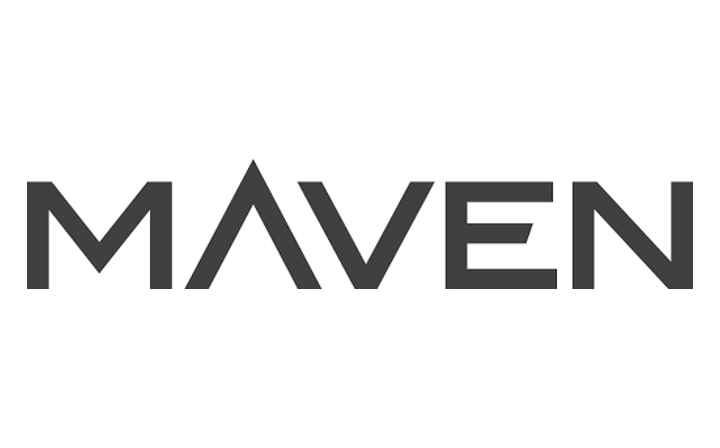
Programme
Mercia Asset Management


Finance and Risk Capital
Impact for scaleups

£948m
assets under management

3
Venture Capital Trusts

£900,000
Average investment
Key sectors














Mercia became an AIM listed company at the London Stock Exchange in 2014. It provides capital across its four asset classes of venture, private equity, debt and proprietary capital – what it describes as the group’s ‘complete connected capital’. It initially nurtures businesses via its third-party funds under management, before over time providing further funding to the most promising companies by deploying direct investment follow-on capital from its own balance sheet.
Mercia only invests in domestic UK businesses with relatively modest capital needs (typically less than £30m in their entire growth journey to exit), aiming to back ambitious business owners who are initially looking for between £250,000 and £10m of investment. In its recent financial year 2022/23, average investment size was £900,000.
The Group’s overarching strategy is to make a positive impact through investment in purpose-led companies. It has an investment track record in the life sciences, digital and deeptech sectors, with investments largely outside of London. The firm has a physical presence in cities including Birmingham, Manchester, Sheffield, Leeds, Bristol, Newcastle and London, ensuring that the requisite investment team is within two hours from prospective and existing investments. Mercia’s investment network is formed from close contacts within a variety of institutions ranging from universities, to the corporate finance community, to non-executive groups and their operational and sector partners.
Its three Northern VCTs alongside its EIS and regional funds operate in the pre-Series A space. Notable scaleups that it has supported include regtech Ideagen, ERP company Lineup Systems and gaming technology nDreams.
Mercia provides a range of support for its portfolio companies. It recently launched a fully funded program called ‘Rise & Thrive: Navigating Investment as Women Entrepreneurs’ that will offer a series of four half-day workshops to 80 female entrepreneurs.
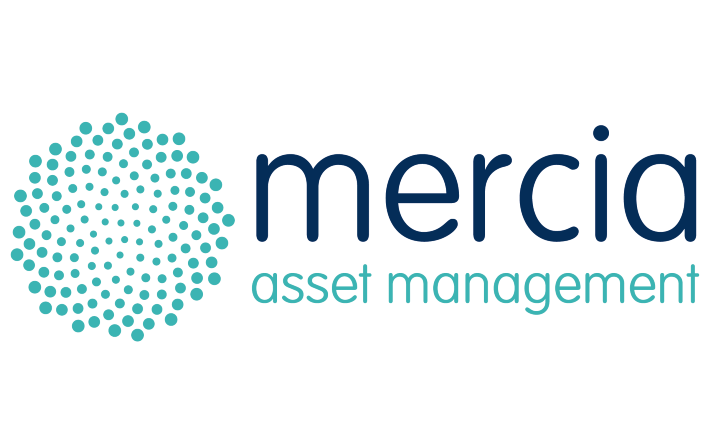
Programme
Octopus Investments


Finance and Risk Capital
Impact for scaleups

£12.8bn
Total funds under management

£1.7bn
VCT assets under management

360
companies in combined portfolio

5
VCTs
Key sectors














Octopus Group is a privately held financial services and energy firm company. Octopus Investments, which started in 2000, has £12.8bn assets under management in the UK (as on 31 December 2022).
Octopus Investment has four VCTs: Future Generations, Titan, Apollo and two AIM VCTs. Octopus Titan is the UK’s largest VCT with approximately £1.3bn of funds under management. Since it was launched in October 2007, it has raised over £1bn of funds from over 20,000 shareholders and has invested in more than 140 pioneering companies. It typically invests £1m-£10m in a first round investment and has the capability to follow on its investments up to £20m with the intention to hold a portfolio of largely unquoted technology companies that are VCT qualifying. It targets a 20% stake in a new company investment, and usually seeks to maintain this stake as the company grows.
Octopus investments’ first investment was in October 2016 with a follow-up investment in April 2021. The company has expanded its operation to Sweden and the US and has scaled multiple times. Current scaleups that it supports include pet insurance Many Pets, femtech company Elvie, and advertising data management software company Permutive.
Apollo VCT has a diversified portfolio of around 45 companies (focusing on business-to-business (B2B) software) with high growth potential. Future Generations VCT invests in purpose-driven businesses.
Each of Octopus Investment areas come with a “People + Talent partner” on board to provide advisory support to the clients on compensation, organisational structure, design, employee well-being, leadership and communication. Particularly, the clients joining at the seed or series A investment stage are assigned a dedicated People + Talent partner for the first 12 months to help plan and implement their recruitment, retention, leadership and culture strategy. Generally, the firm’s website has an open sector specific guide for their clients on topics such as raising capital,maintaining a healthy relationship with funders, and how to develop talent in the organisation.
By 2025, 30% of all new founder pitches to the Octopus Ventures investment team must be businesses led or co-led by a woman and by 2027, this will increase to 50%.
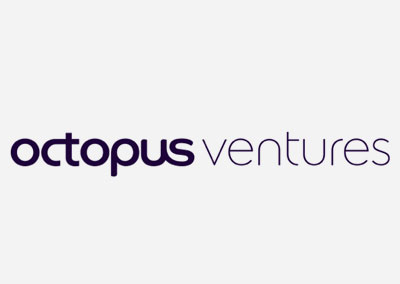
Programme
Accel [2023]


Finance and Risk Capital
Impact for scaleups

40
UK companies backed

45%
Follow-on investments

15%
Investments outside of London

27
Growth-stage investments
Key sectors














Describing itself as a “global partnership to work with the most innovative companies,” Accel is an early and growth-stage VC firm which invests in technology companies in the US, Europe and India.
Between January 2016 to June 2023, the fund participated in 73 fundraisings for 40 UK-based companies. It recently invested in UK scaleups such as Synthesia, a London-based generative AI company that creates realistic human avatars for delivering presentations.
Other investments have included fintechs OpenGamma, Genesis, SuperPayments, Monzo and Soldo, the car buying platform Carwow, design and collaboration platform Gravity Sketch, and zero food waste app Olio.
The great majority of Accel’s investments in the UK are in companies based in London but it has also supported the north-west software development platform Raycast.
Between January 2016 to June 2023, the average turnover of companies supported by Accel was £91.1m with an estimated average number of 247 employees.
In 2022, the firm closed a $4bn global, later-stage fund to provide expansion capital to promising companies within the firm’s global portfolio.
With offices in San Francisco, London and India, the firm uses its network to enable portfolio companies to hire senior leaders, expand into new markets, and provide introductions to new customers. Accel runs events for its portfolio to encourage the sharing of good practice, such as its global SaaStock event, and publishes its annual Euroscape which lists the top 100 SaaS companies in Europe and Israel.
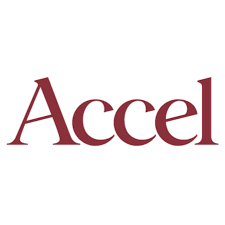
Programme
Amadeus Capital Partners


Finance and Risk Capital
Impact for scaleups

51
UK companies backed

48%
Follow-on investments

59%
Investments outside of London

41
Growth-stage investments
Amadeus Capital Partners is a global technology investor that invests in companies requiring early investment and growth capital with global potential. Founded by Anne Glover and Herman Hauser in 1997, Amadeus now has a team of over 40. One-third of the firm’s early stage investment team are women.
The firm follows three investment strategies: providing seed, start-up and scaleup capital for early stage companies with exceptional IP based in, or growing from the UK; primary and secondary investments in high-growth technology companies; and growth capital investments in tech-enabled consumer and business services in emerging markets. It is focused on AI & machine learning, online consumer services, cyber security, digital health and medical technology, digital media, enterprise SaaS, fintech, regtech and insurtech.
The firm has offices in London, Cambridge, Oxford, San Francisco and São Paulo. It is a partner with the British Business Bank on the Enterprise Capital Fund programme. Its latest £110m Amadeus V Technology Fund includes a cornerstone commitment by British Patient Capital.
Growth investments in the past year include medical device company Inotec AMD, healthcare review platform Doctify, machine learning operations platform Seldon and quantum engineers River Lane Research.
Notable scaleups in their portfolio include chip designers Graphcore, graphene company Paragraf, cell and gene therapy manufacturing platform OriBiotech, Nuclera and PolyAi.
In the period between January 2016 to June 2023, the average turnover of companies in its portfolio was £5.3m and the estimated average number of employees was 55.
Alongside investment Amadeus supports scaling businesses with technical insight, operational experience and access to a global network. They connect portfolio companies to additional support for innovation and growth including access to mentors and NEDs.
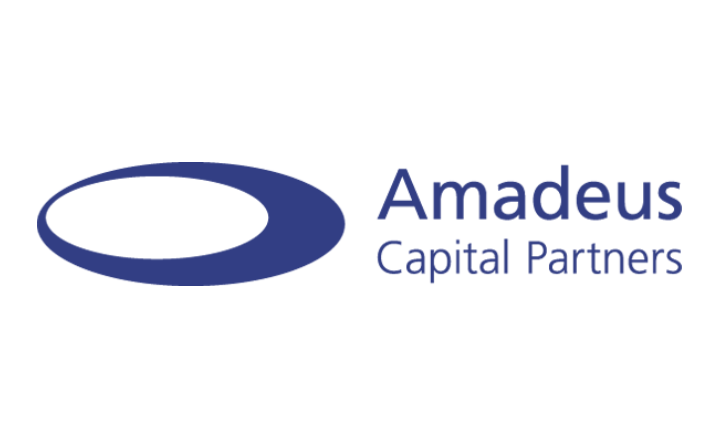
Programme
Archangels


Finance and Risk Capital
Impact for scaleups

20
Scottish companies backed

£13.4
invested in 2022

78%
growth stage investments

£10m
average annual investment
Key sectors














Established in 1992, Archangels says it is “the longest continuously operating angel syndicate in the world.” Based in Edinburgh, Archangels aims to deliver returns for its investors while harnessing their experience and networks to fuel the success of Scotland’s entrepreneurs and innovators in technology and life sciences.
The syndicate currently has around 120 members invested in a portfolio of 20 early-stage companies. The preferred level of investment is £250k to £2m and typically co-ordinates the investment of more than £15m per year. While the capital provided by Archangels is not primarily scaleup capital, it provides businesses with patient money to help them on their scaling journey.
The syndicate typically co-ordinates the investment of more than £10m per year in early stage Scottish tech and life science companies. Archangels invested £13.4m during 2022; the total investment among 11 businesses was a 14% increase on Archangels’ investment activity in 2021 (£11.8m).
Archangels regularly invests alongside co-investment partners including Scottish Enterprise, other angel syndicates and VCs. In 2023, the syndicate secured a £12m co-investment agreement with British Business Investments via its Regional Angels Programme.
Companies must fit the investment criteria of being based in Scotland; a technology or life science business with a B2B business model; having high growth potential with international sales potential; defendable technology; and qualify under the Enterprise Investment Scheme. Its investments include Integrated Graphene, Cytomos, Earth Blox, Administrate and BioCaptiva and NCTech.
Archangels helped in the creation of the Scottish Co-Investment Fund (SCF) which sees the public and private sector partnering to support risk financing of early-stage high-growth potential companies. SCF has increasingly participated in Archangels’ deals with a relatively steady proportion of total investment at around 25-30%. Archangels uses this stable relationship to increase leverage, particularly in later rounds. SCF’s participation offers Archangels’ portfolio companies further support including mentoring and other practical support from the public sector.
As well as financial investment, members contribute their time and expertise to support company growth including providing connections to relevant industry experience and contacts. Archangels has pushed its learnings into the wider angel community and beyond into the policy domain in order to facilitate improved performance and impacts economically. The open innovation approach taken by Archangels from an early stage has helped facilitate the wider growth of angel investing in Scotland.
According to recent analysis conducted by the University of Glasgow’s Adam Smith Business School, the £161m invested by Archangels since 1992 has directly created 3,647 high-skilled jobs and indirectly created a further 1,500 jobs. The companies in which Archangels has invested from 1992 to 2021 are estimated to have created over 4,000 jobs, generated aggregate turnover of at least £2.15bn and have contributed £1.43bn GVA to the Scottish economy.

Programme
Balderton Capital


Finance and Risk Capital
Impact for scaleups

45
UK companies backed

41%
Follow-on investments

22%
Investments outside of London

36
Growth-stage investments
Key sectors














Founded in 2000, Balderton Capital focuses on Series A and B investments into European and US technology companies. It has backed more than 230 companies. It typically invests between US$1-20m into “companies with the potential to disrupt huge industries, and the ambition to scale globally” and says that it takes a long-term approach.
The fund primarily invests in businesses based in the UK, US and Europe. It takes a broad sector focus on technology and the internet as a whole. Four in five of their investments in UK companies between January 2016 to June 2023 were at growth stage. Notable scaleups in the firm’s portfolio include Zego, Revolut, Lendable, Wagestream and Wayve.
After announcing its first fully-fledged growth fund in June 2021, the firm also launched its $600m Fund VIII – its largest ever early-stage fund.
The firm has a “Build platform” to provide talent, marketing, finance and legal services to support companies as they scale, and to connect founders and their team to an active peer community. The firm provides guidance on talent acquisition and global expansion, as well as publishing guides on topics such as employee equity schemes and optimising board structures. Scaling portfolio companies have access to the firm’s executive council, which consists of leaders in the global technology industry, and has “a CEO community” of more than 100 people, sharing guidance with one another in a private community.
The firm has launched a Founder Wellbeing programme, saying that “high-performance athletes don’t train at 100% intensity, 7 days a week and ignore everything else – and neither should high-performance founders.”
The firm has a Sustainable Future Goals initiative, bringing together over 60 portfolio peers actively involved in sustainability and impact to share ideas and learnings, and has appointed its first “executive in residence,” to advise Balderton’s portfolio CEOs and founders on areas including SaaS metrics, strategy, marketing and US expansion.

Programme
Beringea [2023]


Finance and Risk Capital
Impact for scaleups

39
UK companies backed

29%
Follow-on investments

23%
Investments outside of London

41
Growth-stage investments
Key sectors





The firm invests in the UK, EU and USA, focusing on healthcare, cleantech, consumer, media, business services and technology. In the UK and EU, its typical initial investments are between £1-10m into companies with at least £1m turnover, tending to lead Series A or Series B rounds with further funding available for follow-on investments. Beringea manages more than $700m in funds in the UK and the US. In the UK, Beringea manages three VCTs, including ProVen VCT and ProVen Growth and Income VCT which together manage more than £300m.
Between January 2016 to June 2023 Beringea participated in 55 fundraisings, of which 16 were follow-on investments. All of them were growth stage investments at the time of fundraising. These include healthcare review platform Doctify (alongside Amadeus Capital Partners), hardware brand Plank Hardware, social impact measurement platform Social Value Portal, and seltzer brand Dash Water.
Other scaleups in its portfolio include the locum GP platform Lantum, psychometric test developers Arctic Shores, and fashion styling service Thread.
The average turnover of companies supported by Beringea in the period between January 2016 to June 2023 was £19.3m and the average number of employees was 69.
The firm runs its own Scaleup Academy, an annual programme of events and training to help the leadership teams of its portfolio companies overcome barriers to scale, and emphasises its capabilities in assisting the transatlantic expansion strategies of its portfolio companies.
It has also been a leading figure in the creation of an industry initiative – ESG_VC – to support early-stage companies to measure, monitor and maximise their performance against key ESG metrics. The firm has been accredited as a Level 2 firm in the Diversity VC Standard, recognising it as developing and adopting best practice for diversity and inclusion throughout its operations as a VC firm. Currently, 42 per cent of Beringea’s UK investment team are women, as well as 40 per cent of its UK investment committee.

Programme
BGF [2023]


Finance and Risk Capital
Impact for scaleups

c.600
Companies backed since 2011

£3.8bn
Invested since 2011

£1m-£20m
Initial investments and follow-on funding provided

73%
of funding invested outside of London and the South East
Key sectors














Since its formation in 2011, BGF has backed almost 600 businesses in the UK and Ireland. The investor supports a range of growing companies – early stage, growth stage and quoted – across every region and sector of the economy. It has invested £3.8bn since 2011.
BGF makes long-term equity investments in return for a minority, non-controlling stake in the companies it backs. Initial investments are between £1m-£20m and can be followed by significant follow-on funding. The ScaleUp Institute’s Female Founder Index has identified BGF as the most active institutional investor in women-led businesses for the past four years.
The company has 15 offices in the UK and Ireland. Roughly three-quarters (73%) of its investments are into companies based outside London and the South East. The BGF portfolio of companies collectively employ more than 60,000 people. Scaleups it has backed include healthcare infrastructure specialist Archus, autonomous vehicle software developer Oxa and iconic foldable bicycle brand Brompton.
BGF has established a clean growth advisory board led by Baroness Brown, chair of the Carbon Trust, to accelerate efforts to invest in companies supporting the energy transition.
BGF has an internal team of nearly 200 combined with a 6,000-strong network of business leaders, sector experts and non-executive directors called the Talent Network. Part of BGF’s model is to connect portfolio companies with members of the Talent Network, who serve as non-executive directors as well as provide ad hoc consultancy services.
The BGF model is internationalising. In 2018, Canada launched its own BGF while Australia did the same in 2020. Both are backed by a combination of banks and major investors.
In September 2022, BGF led the second annual Scaleup Week, a week-long series of virtual events, in partnership with the ScaleUp Institute.
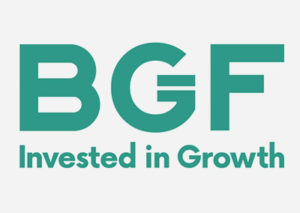
Programme
British Business Bank: Enterprise Capital Fund


Finance and Risk Capital
Impact for scaleups

675+
Companies backed

53%
Investment outside of London

£2bn
Total investment capacity of the programme
Key sectors














The British Business Bank’s Enterprise Capital Funds (ECF) programme combines private and public money to make equity investments in high growth businesses. Launched in 2006, it is designed to increase the supply of equity to UK growth companies and to lower the barriers to entry for fund managers looking to operate in the venture capital market. ECFs are commercially focused funds that bring together private and public money to make equity investments in high growth businesses. It is working with 35 Fund partners across the UK.
To date, 43 ECFs have been in operation, providing £784m of equity finance and supporting more than 675 innovative growing businesses across a range of sectors.
The top five sectors supported by ECFs are SaaS, AI, industrials, TMT (technology media and telecommunications), and healthcare – 53% of the investments are outside of London. The British Business Bank invests alongside VC funds on terms that improve the outcome for private investors when those funds are successful. The ECF programme has helped 31 fund managers to raise their first institutional fund and 89% of the fund managers they have invested in prior to 2016 have already gone to raise a further fund.
The average size of an ECF has increased from £20m to closer to £60m during the lifetime of the programme. Since inception the capital committed by the British Business Bank and the matched private sector capital has amounted to £2bn. The Bank’s rolling investment programme of commitments to new ECFs is a competitive process, with typically two to three investments made per year. Recent ECFs include Imbiba Growth II LP – Imbiba is a B Corp accredited investor which focuses in leisure and lifestyle businesses – and Mercuri (formerly GMG Ventures), which backs companies at the intersection of media and technology.
The current fund managers include: Active Partners, Ada Ventures, Amadeus Capital Partners, Catapult Ventures,Concept Ventures, Dawn Capital, Edge Investment, Eka Ventures, Entrepreneur First, Episode 1, Epidarex Capital, Foresight Group, Form Ventures, Imbiba, IQ Capital, Jam Jar Investments, Longwall Ventures, Mercuri, Notion Capital, Panoramic Growth Equity, Passion Capital, Pentech, Redrice, Seraphim Capital, Superseed Ventures, Sure Valley Ventures, Sussex Place Ventures, VGC Partners, Zinc VC.

Programme
Cambridge Angels


Finance and Risk Capital
Impact for scaleups

120
UK companies backed

31%
Follow-on investments

73%
Investments outside London

58
Growth-stage investments
Key sectors



Cambridge Angels is a group of more than 60 high-net worth investors who invest in and mentor high quality early-stage and scaling companies in Cambridge, London, Oxford and throughout the UK. In 2022, Cambridge Angels invested £71.2m in 58 companies.
Typical funding requirements that Cambridge Angels meet are in the range of £150k to £1.5m – although several portfolio companies have raised significant follow-on funding from its members and the network’s VC partners over several funding rounds. There is a particular focus on deep-tech, and tools and technologies supporting healthcare.
The network’s membership has founded, invested in and led a large number of successful Cambridge-based companies in recent years, such as Paragraf, Arecor, Eagle Genomics, Privitar and Healx. In addition to providing funding, Cambridge Angels also offers expertise, contacts and directly relevant experience to early-stage and scaling companies – in what it terms “smart capital from entrepreneurs to entrepreneurs.”
Emphasis is placed upon leveraging the collective experience of the portfolio and the angels. Sessions are hosted in which angels and a network of professionals and associates provide portfolio companies with education sessions on topics such as exits and building leadership teams.
Since inception in September 2001, Cambridge Angels has invested in excess of £150m in over 120 portfolio companies. 24 of the companies in the current portfolio are in the scaleup stage having received early-stage funding and support from Cambridge Angels at their seed stage and continuing to date.

Programme
Cambridge Innovation Capital (CIC) [2023]


Finance and Risk Capital
Impact for scaleups

31
UK companies backed

54%
Follow-on investments

77%
Investments outside London

26
Growth stage investments
Key sectors



Cambridge Innovation Capital (CIC) backs world-leading life sciences and technology companies with an affiliation to Cambridge. It was founded in 2013 by the University of Cambridge to create a trusted local firm that would provide early stage capital to promising life sciences and technology businesses emerging from the university – for which it is a preferred investor – and the Cambridge ecosystem. It is an exemplar of how universities and financiers can collaborate to support their scaleup communities.
CIC currently manages over £500m and has invested in 31 companies. In the period from January 2016 to July 2023, CIC has supported 67 fundraisings of which 36 (54%) were follow-on investments. Eight in ten (84%) were growth stage investments at the time of fundraising.
Nearly eight in ten (77%) of CIC’s investments are outside of London. CIC invests in disruptive, deep-tech businesses in sectors including, but not limited to, artificial intelligence, internet of things, quantum technologies, autonomous systems, therapeutics, medtech/diagnostics, digital health and genomics/proteomics.
Notable scaleups that CIC has supported include CMR Surgical, Congenica, PragmatIC Semiconductor and Microbiotica.
CIC has worked closely with stakeholders in the ecosystem – such as the Babraham Research Campus, endorsed by the ScaleUp Institute – to establish new accelerators, such as Start Codon (founded in 2019) for life sciences and healthcare businesses which aims to speed up the process of going from “bench to product” and offers investment, mentoring and access to research infrastructure including laboratory space. CIC has also helped to establish, and co-owns, the Deeptech Labs accelerator for technology businesses, providing hands-on support to bridge the gap between translational research and ‘Series A’ ready businesses. In September 2022 Cambridge Innovation Capital, Cambridge Enterprise and the University of Cambridge launched Innovate Cambridge, an initiative aiming to define an inclusive, ambitious, and broad-ranging innovation vision for the Greater Cambridge region.
Its team brings to its portfolio companies deep domain and operational expertise from its past experiences as entrepreneurs, scientists, operators and investors. The team takes a hands-on approach including board participation, business planning and development, executive recruitment, commercialisation and scaleup.
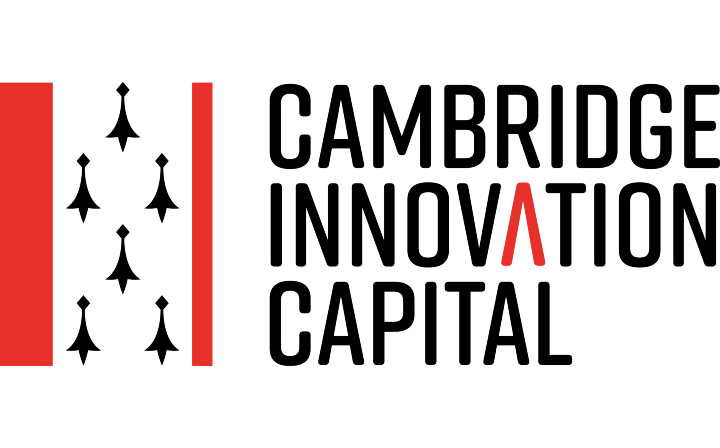
Programme
Crowdcube


Finance and Risk Capital
Impact for scaleups

952
UK companies backed

29%
Follow-on investments

47%
Investments outside of London

473
Growth-stage investments
Key sectors














Crowdcube invests in UK companies and has offices in Exeter and London.
Online equity crowdfunding platforms, on which businesses pitch to receive investment, have become an established conduit for finance among seed, early-stage and scaling businesses, bridging the gap from family and friends funding rounds and later, larger institutional rounds. The institutionalisation of equity-based crowdfunding continues as VC firms, professional and retail investors co-invest on and with the platforms.
While the average amount raised on the platform is £800,000, with funding available as equity investment or mini-bonds, the size of investment rounds has increased in the past year. Since January 2016, there have been 473 growth stage investments made into UK companies – 50% of all the companies that have used the platform for fundraising.
Food and drink companies, mobile apps, internet platforms and e-commerce have been the most popular sectors among companies raising finance on the platform. Notable scaleups to have used the Crowdcube platform to access equity finance include what3words, Honest Burgers and BrewDog.
The platform provides companies that raise funds via the platform with access to a help centre and a campaigns team, access to a network of founders, and support with marketing and investor relations. Recently, it has launched Cubex, a secondary marketplace to enable retail investors to buy and sell shares in high-growth private European companies. It has announced a partnership to enable its retail investor members to invest in Octopus Investments VCTs. This reflects the maturing age, size and profile of companies raising capital via Crowdcube.

Programme
Development Bank of Wales [2023]


Finance and Risk Capital
Impact for scaleups

£109m
direct investment

95%
outside of London

£1.9bn
funds under management
Key sectors









The Development Bank of Wales (DBW) was initially established as Finance Wales in 2001 by the Welsh Assembly Government. In October 2017, it was renamed as the Development Bank of Wales and strengthened as a national financial institution with greater scope to provide commercial funding to businesses in Wales.
It is a wholly-owned subsidiary of the Welsh Government, providing Welsh businesses with capital to start up, strengthen and grow, and directing public funds to where they can have the most impact. The bank provides loans, property loans, seed and acquisition finance and equity investments between £50,000 to £10m. The DBW Group is made up of the Development Bank of Wales, Angels Invest Wales and North of England fund manager FW Capital.
In the financial year ending 31 March 2023, DBW invested more than £124m and “created or safeguarded nearly 3,500 jobs.” It showed a 97% growth in equity investments from £11.6m to a record figure of £22.9m. Equity and debt totaling £20.5m to finance succession deals for 44 different businesses.
DBW continues to focus on working with the private sector to maximise the flow of private capital in Wales. Private sector co-investment in 2022/23 was £114.5m. Scaleups that it has supported include events company Worldspan and biotech Jellagen.
DBW continues to be the biggest equity investor in Welsh businesses – participating in 350 deals across the high-growth ecosystem between 2013 and 2022. It co-invests alongside other banks, VCs, angel investors, crowdfunding platforms and grant funders. It has a network of dedicated, local account managers. The number of investors registered by Angels Invest Wales (AIW) has continued to rise to 334, with 102 of them angel investments in the financial year 2022/23. The DBW’s five year plan to 2027 is to directly invest over £650m into Welsh companies.
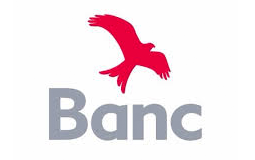
Programme
Eight Roads


Finance and Risk Capital
Impact for scaleups

20
UK companies backed

35%
Follow-on investments

15%
Investments outside of London

18
Growth-stage investments
Key sectors














Eight Roads provides venture and growth-stage capital, investing in technology and healthcare companies that are in their scaleup phase.
With its origins stretching back to 1969 as Fidelity Ventures, the firm has its head office in London with other offices in Hong Kong, Beijing, Shanghai, Mumbai, Tokyo, Hamilton, Boston and Stockholm. Eight Roads invests in companies based in Europe, US, India, Japan and China.
It has backed 20 UK companies since 2016 with the great majority being into London-based companies. Scaleups in which it has invested include logistics AI company Raft and remote surgical technology company Proximie.
The firm says that it backs founders “with high conviction” and is selective about the number of investments it makes. Its principal investment team takes a patient capital approach which it says is appropriate for the long development times for healthcare companies, particularly in therapeutics. It offers guidance on a range of topics such as building sales teams, accessing new export markets through its online platform and also hosts international market events for portfolio companies.

Programme
Envestors


Finance and Risk Capital
Impact for scaleups

52
UK companies backed

20%
Follow-on investments

60%
Investments outside of London

36
Growth-stage investments
Key sectors








Established in 2004, Envestors is an FCA regulated finance adviser in the UK which connects investors and scaleup businesses through its digital investment technology that provides a white label platform for accelerators, incubators and angel networks. It has facilitated over £100m of investment into more than 500 companies from its network.
In the period between January 2016 to June 2023, it supported 52 UK companies in 65 fundraisings. More than two in three (69%) were at a growth stage at the time of the investment. Scaleups currently supported by Envestors include VoxSmart and Sphere Fluidics.
Its Envestry for Scaleups provides a Software as a Service (SaaS) platform which can be used to automate the application process for businesses seeking support, showcase investment opportunities to investors in a secure area and allow its investors to track opportunities and manage their portfolio.

Programme
Frog Capital


Finance and Risk Capital
Impact for scaleups

6
UK companies backed

33%
Follow-on investments

17%
Investments outside London

4
Growth-stage investments
Key sectors











Frog Capital is a scaleup stage investor focused on software-enabled businesses in Europe. It invests in companies in equity rounds of €5m to €20m in European software scaleups across two key themes – digital infrastructure and smart data – with annualised revenues of between €3m – €30m.
To date, it has invested in over 60 companies around Europe. Notable scaleups in its portfolio include Modulr and Clue. One recent exit was Evotix, which featured as a scaleup story in the ScaleUp Institute 2021 Annual Review.
Frog Capital was endorsed by the ScaleUp Institute in 2021 as an exemplar of a fund that is acting as “a scaleup partner,” tailoring its support to match the unique needs of each business, helping with senior-level recruitment and introducing portfolio CEOs to other investment partners from their network.
The firm’s website offers dedicated pages with scaleup insights, including thought leadership and toolkits to support and help scaleups on their growth journey. The firm has defined major elements which are essential for any CEO to succeed in the scaleup phase, and they provide expert guidance on execution, planning, strategy and resilience.
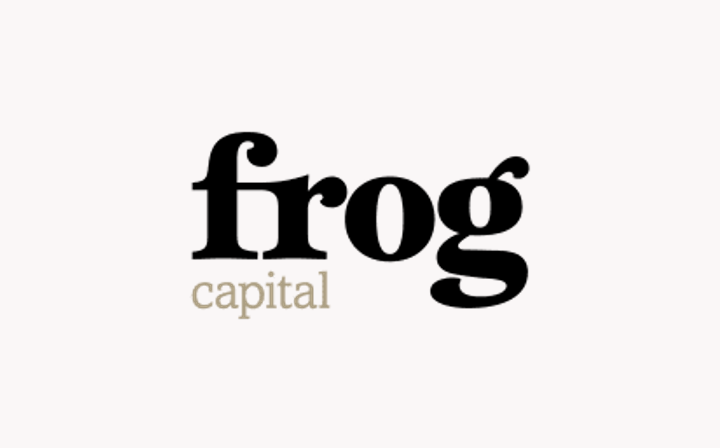
Programme
Index Ventures [2023]


Finance and Risk Capital
Impact for scaleups

57
UK companies backed

32%
Follow-on investments

16%
Investments outside of London

43
Growth-stage investments
Key sectors














Describing itself as “a distributed, global company,” Index Ventures is an international venture capital firm with dual headquarters in San Francisco and London. It invests in technology-enabled companies with a focus on e-commerce, fintech, mobility, gaming, infrastructure/AI, and security.
Between January 2016 to June 2023, the firm supported 57 UK companies in 84 funding rounds, of which 27 were follow-on rounds. Three-quarters (75%) were at their growth stage at the time of the fundraising.
Index has supported scaleups such as classified ad platform Adzuna, online flower seller Bloom & Wild, regtech ComplyAdvantage, childrens’ computer kit company Kano and apprenticeship tracking service Multiverse. Recent investments have included skincare consultants GetHarley, biomedical research software Causaly, and carbon intelligence platform Sylvera.
The firm argues that “what used to be venture capital’s primary product – capital – is no longer its main selling point. The next generation of entrepreneurs is looking for expertise and personal relationships with their investors, where we become partners, advisors, mentors and coaches.”
The firm also produces Index Resources, comprising guides, podcasts, plans and playbooks for companies seeking to expand into the US and Europe, as well as a guide to stock options for rewarding talen

Programme
IP Group


Finance and Risk Capital
Impact for scaleups

78
UK companies backed

37%
Follow-on investments

82%
Investments outside of London

50
Growth-stage investments
Key sectors














The 22 year-old IP Group is an FTSE-250 listed IP commercialisation company which has helped to develop more than 500 companies. With a focus on life sciences, deeptech and cleantech, it invests in university spin-outs at seed, venture and growth stages and assists them with the commercialisation of their new products and services, with technology transfer, IP licensing and protection. It continues to invest in portfolio companies as they scale.
It describes itself as “one of the largest investors in university and other research-based companies in the world; the most prolific investor in deeptech companies in the UK and the second most prolific in Europe.”
The firm has a long-term partnership model with UK universities and developed an approach to supporting businesses from “cradle to maturity,” including assistance with executive search and recruitment and raising growth stage capital from co-investors. It currently has partnerships with 17 UK universities, six US universities and nine universities in Australia and New Zealand.
The company owns Parkwalk Advisors, an active EIS investor in university spin-outs of ‘hard science’ companies, and has stakes in Oxford Sciences Innovation and Cambridge Innovation Capital. Other UK scaleups in its portfolio include Ultraleap, Crescendo Biologics, First Light Fusion and Istesso.
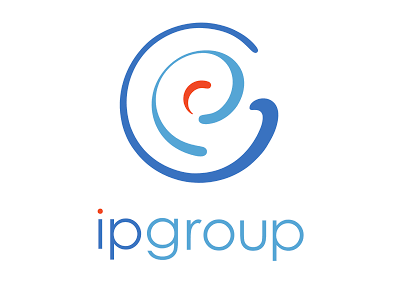
Programme
LDC [2023]


Finance and Risk Capital
Impact for scaleups

51
UK companies backed

84%
Investments outside of London

14
Growth-stage investments
Key sectors














LDC is the private equity arm of Lloyds Banking Group and has been an active investor in UK companies since 1981, during which time it has supported over 650 management teams and invested more than £5.5bn in mid-sized businesses.
It backs management teams from UK-based medium sized companies seeking up to £100m of investment to fund management buyouts or development capital transactions. Its initial investments are between £10m and £50m and it looks to invest £400m per annum. Its investment criteria are that a company must demonstrate minimum revenues of £5m with profits of £1m and a two-year profits history.
The firm invests solely in UK companies and has 12 locations in the UK. Over the past ten years it has backed companies based in more than 100 UK towns and cities. It is accelerating its investment activity from 2022, with a pledge to back at least 100 new mid-market companies over the next five years. In 2022 alone, it deployed £354m into new investments and £38m into follow-on funding.
Scaleups in its portfolio include proptech iamproperty, learning solutions provider Omniplex and specialist event production agency Star Live.
Portfolio companies are provided with sector-specific guidance, access to an executive network, and peer network opportunities with other portfolio companies. A value creation team of experts is available to help identify particular pressure points and new growth opportunities, supporting management teams with projects from sales effectiveness, to digital marketing, procurement and operations.
It publishes an annual list of the 50 most ambitious business leaders which is now in its fifth year, celebrating “the leaders behind some of the UK’s most exciting mid-sized firms,” and has recently expanded and extended its partnership with The Prince’s Trust.
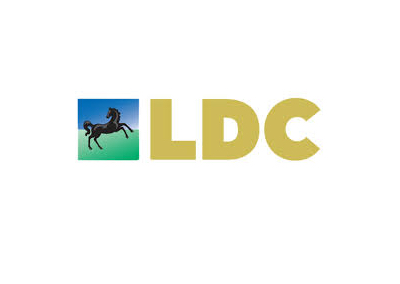
Programme
Livingbridge [2023]


Finance and Risk Capital
Impact for scaleups

29
UK companies backed

13%
Follow-on investments

52%
Investments outside of London

17
Growth-stage investments
Key sectors


Livingbridge is a 25-year-old private equity firm that has been investing in four sectors – healthcare and education, services, consumer and TMT – and has made more than 165 investments.
It typically makes investments between £5m to £100m, taking a flexible approach – it will provide growth capital, as well as funding management buy-outs and secondary buy-outs and replacement capital deals. It will invest in high-growth, entrepreneurial businesses with enterprise values of up to £300m.
The average size of its investment round into UK companies since 2016 is £12.1m. In the period between 2016 to June 2023, the firm invested a total of £206m in 29 UK companies in 33 fundraising rounds. The average turnover of those companies was £29.2m and their average number of employees was 343.
Scaleups in its portfolio include wellness brand Absolute Collagen, insurance brokers Jensten Group, telecoms services provider FluidOne, and circular economy pioneer World of Books.
The firm has offices in London, Birmingham and Manchester and an Australian office in Melbourne to make primary investments in the UK, Australia and New Zealand. It has an office in Boston and a US industry advisory board to support expansion and M&A in the US.
To support the growth strategies of its portfolio companies, Livingbridge has developed its “growth accelerators,” which it describes as “core value creation capabilities designed to unlock a business’s potential.” Its in-house growth acceleration team is made up of market experts principally covering international growth, corporate development, customer acquisition and retention, talent and technology. Its managing partner, Wol Kolade, is a founder of The 10,000 Black Interns programme, which will offer paid work experience across a wide range of sectors, providing training and development opportunities and creating a sustainable cycle of mentorship and sponsorship for the black community.
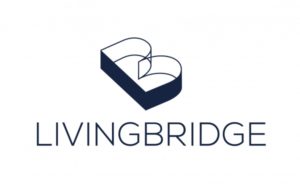
Programme
MMC Ventures [2023]


Finance and Risk Capital
Impact for scaleups

47
UK companies backed

43%
Follow-on investments

30%
Investments outside London

47
Growth-stage investments
Key sectors

MMC has a strong track record in supporting scaleups. The firm manages funds for private individuals and institutions and has approximately $1bn under management. It backs “transformative” technology companies, investing approximately £30m per annum in new investments and follow-on capital. It was the first commercial venture capital firm in the UK to qualify as a B Corp.
Founded in 2000, MMC targets an initial investment of £1-5m and can support further growth of “knowledge intensive companies” with up to £20m. Its £100m Scale-Up Fund provides expansion capital to portfolio companies once they have grown beyond the limits of EIS investment, and can also participate in secondary transactions, offering liquidity to early MMC and third-party investors.
Notable scaleups it has backed to date include Gousto and Bloom & Wild, cash management platform TreasurySpring and AI video creation platform Synthesia.
Portfolio companies benefit from a peer learning network programme, where companies are paired with a relevant counterpart to meet/zoom for one hour each month for six months – and there is also the flexibility to tailor the relationship to suit their individual needs.
MMC also assists investee companies in areas including international expansion, senior hiring, access to potential clients, corporate governance, fundraising, bank finance and exit. Its research team works closely with investee company founders to help businesses grow. Themed events are hosted regularly and podcasts and videos are available on their website.

Programme
Molten Ventures


Finance and Risk Capital
Impact for scaleups

41
UK companies backed

44%
Follow-on investments

39%
Investment outside of London

37
Growth-stage investments
Key sectors














Molten Ventures invests in venture and growth-stage companies based in Europe. Founded in 2006 as Draper Esprit, it has offices in London, Dublin and Cambridge and invests primarily in four sectors: consumer technology, enterprise technology, hardware and electronics, and digital health and wellness.
The firm invests in disruptive, high-growth technology companies. It says that it looks for the brightest thinkers with the best teams in tech, and backs them for the long term. Notable scaleups which it has supported include microchip design firm Graphcore, blockchain security firm Ledger, and the fintechs Thought Machine and Form3.
The firm is listed on the Main Market of the London Stock Exchange with a secondary listing on Euronext Dublin. The firm says that this demonstrates how “publicly listed venture capital is a powerful force for supporting entrepreneurs on their own long-term journeys to outsized success” and that its “public listing and multi-fund model enable us to provide entrepreneurs with backing across their companies’ life cycles, fuelling the best businesses for longer.”
In its financial year to March 2023, it made £138m of investments from its balance sheet and a further £48m from EIS/VCT funds. £112m in primary investments, compared to £128m in the previous year.

Programme
Newable Ventures


Finance and Risk Capital
Impact for scaleups

53
UK companies backed

21%
Follow-on investments

47%
Investments outside London

37
Growth-stage investments
Key sectors














Newable Ventures (originally London Business Angels) backs entrepreneurs with a network of more than 500 early angel investors. The network invests via its own EIS evergreen fund, curating syndicates and engaging with co-investment partners. It invests in approximately 7-10 companies each year focusing on early stage and scaling businesses in medtech, AI, space, robotics and industrial technologies.
Scaleups that it has backed include Q-Bot, Hummingbird Technologies, Threads Styling, and Media Sense.
Newable has also launched three scale-up funds. The Newable Scale-up Fund 3 targets the funding gap that exists for companies which have potentially de-risked their technology, developed traction with customers and now seek funding to scale their commercial operations. It provides investors with a diversified portfolio of seven to ten qualifying companies per investment.
Scaling and scaleup businesses have access to a range of business support services from a team of business and innovation advisers, including help with business model innovation, including the development and implementation of business models that are new to the firm; support to progress new products or services; develop or refine their digital strategy; and achieve their sales and growth ambitions.; assistance with Intellectual Property (IP) awareness and commercialisation; access to further funding (eg via grants and other investors) and investment readiness and pitch preparation; support and advice services to access international markets including the development of a tailored export growth action plan; market insights; connectivity with buyers and partners overseas; and access to trade fairs; and support programmes for female-led and diverse founders.
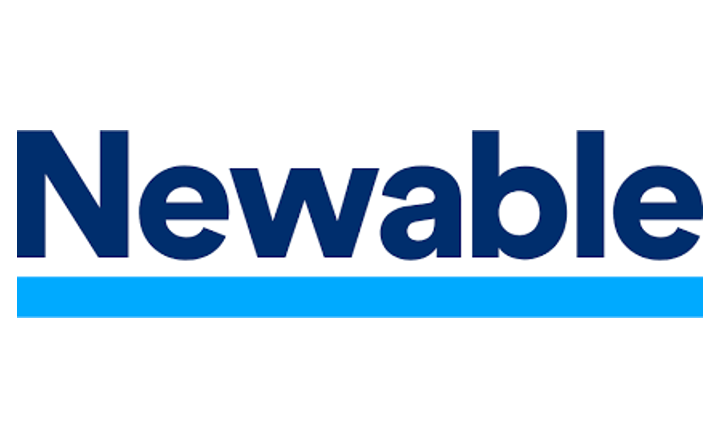
Programme
Notion


Finance and Risk Capital
Impact for scaleups

42
UK companies backed

44%
Follow-on investments

21%
Investments outside of London

33
Growth-stage investments
Key sectors














Notion invests exclusively in the European enterprise tech and B2B SaaS sectors. Located in London, it has made over 100 investments since its inception in 2009.
Notable scaleups in its portfolio include Paddle, CurrencyCloud, GoCardless and Yulife. It makes frequent follow-on investments: in the period from January 2016 to July 2023, Notion has supported 75 fundraisings of which 33 were follow-on investments. Four in five (79%) were growth stage investments at the time of fundraising.
In the summer of 2023, it closed its fifth fund – the €300m fund is almost double the size of its predecessor.
Over the past four years, the firm has conducted an annual Net Promoter Score (NPS) survey to gather feedback from founders and CEOs in the portfolio – as a consequence of the last survey, the firm is focusing its efforts on building up its relationships with international VCs, particularly those in the US, to support the expansion strategies of its portfolio companies. Its annual two-day founder retreat has scored an NPS of 100.
Notion continues to lead and support Included VC, a 12-month programme designed to offer access for under-represented communities to the venture capital industry. It publishes an annual Cloud Challengers report to identify Europe’s top 100 early stage, B2B SaaS/Cloud companies.

Programme
Partech


Finance and Risk Capital
Impact for scaleups

15
UK companies backed

44%
Follow-on investments

20%
Investments outside of London

11
Growth-stage investments
Key sectors














Partech makes equity investments at seed, venture and growth stage. Its Growth team invests in European scaleups, making initial investments from €20m to €60m.
With offices in San Francisco, Paris, Berlin and Dakar, Partech’s investment focus is on technology and digital businesses in the UK, US and Europe and is developing its presence in Asia and Africa. Its current portfolio is made up of 200+ companies in more than 30 countries.
In the period between January 2016 to June 2023, Partech supported 15 UK-based companies across 27 fundraising rounds, with three in four (73%) being at growth stage at the time of fundraising. The firm has backed UK scaleups such as payment processing platform Blink.
In support of its portfolio companies, Partech provides coaching on strategy, operations, executive hiring, board structure, as well as preparation for M&A and build-ups. The firm has launched Partech Shaker, a nine-story building in central Paris designed for tech startups and scaleups.
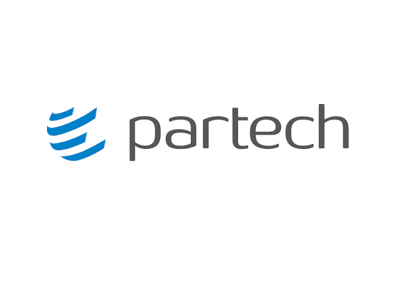
Programme
Scottish Enterprise Growth Investment Team [2023]


Finance and Risk Capital
Impact for scaleups

177
UK companies backed

37%
Follow-on investments

122
Growth-stage investments

£2bn
Private sector investment leveraged over 20 years
Key sectors














The Scottish Enterprise Growth Investment Team (formerly known as Scottish Investment Bank) is the investment arm of Scottish Enterprise, Scotland’s national economic development agency. It operates across Scotland, working in partnership with Highlands and Islands Enterprise and South of Scotland Enterprise, seeking to ensure that businesses with growth and export potential have adequate access to growth capital, including equity and debt.
SE Growth Investment Team supports companies to prepare to raise and access finance, provides a financial readiness service to help companies identify and secure appropriate sources of finance, and supports investee companies on an ongoing basis through portfolio management.
Managing a suite of investment funds and working closely with private sector investors, SE Growth Investment Team’s evidence-based market interventions increase the supply of finance for companies in Scotland.
Its Scottish Co-Investment Fund (SCF) provides matched funding with accredited investment partners up to a maximum of 50% of the total funding package, providing from £100,000 up to £1.5m in deal sizes typically ranging from £200,000 up to £10m.
Its Scottish Venture Fund provides ‘gap’ funding, identifying gaps within funding rounds which are led by sophisticated experienced arms’ length private sector investors. The Scottish Venture Fund will invest on equal terms, typically providing from £100,000 up to £2m as part of a total deal size typically ranging from £200,000 to £10m.
In the period between January 2016 to June 2023, Scottish Enterprise supported 177 Scottish companies across 282 fundraising rounds, investing a total of £389m. The average size of its investment round into UK companies since 2015 is £1.46m. The firm has backed Scottish businesses such as ENOUGH, Orbital Marine Power, Amphista Therapeutics and Intelligent Growth Solutions.
SE Growth Investment Team has been recognised as an exemplar for its support of high growth businesses in their scaleup journey and its promotion of emerging sectors. SE Growth Investment Team plays an active role as a co-investor such as its work with the Scottish Angel ecosystem. With wider support from Scottish Enterprise, SE Growth Investment Team is an exemplar of a rounded local ecosystem approach to scaleup growth.
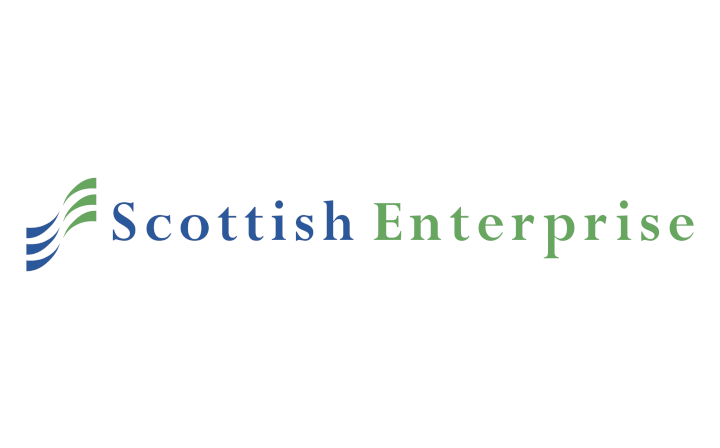
Programme
Scottish Equity Partners


Finance and Risk Capital
Impact for scaleups

12
UK companies backed

29%
Follow-on investments

58%
Investments outside of London

7
Growth-stage investments
Key sectors

Scottish Equity Partners (SEP) is a late stage venture and growth equity investor focused on technology and technology-enabled companies based in the UK and Ireland, and selectively in other parts of Europe. It has offices in Edinburgh, Glasgow and London. Over the last 20 years it has invested in more than 160 companies.
The firm invests between £5m to £25m but also funds larger deals, co-investing with others, including its own fund investors. Between the period of January 2016 to June 2023, the firm has participated in 17 fundraisings for 12 scaling businesses.
SEP plays an active and supportive role in the growth and development of its portfolio companies. It has a strong track record in supporting its portfolio companies with talent acquisition, building leadership capability, and assisting international growth. The firm describes itself as a specialist in supporting businesses to internationalise and to increase their revenues from less than £10m to £100m and beyond.
Its current portfolio generate over £1.5bn of revenues and employs more than 6,500 people. Scaleups in its current portfolio include open source software company Tyk, cloud communications specialist Content Guru, regtech FundApps, handicraft digital platform LoveCrafts and the fintech Totally Money.
The firm, which is a signatory to the Women in Finance Charter, has a 38% female representation in its senior management positions. It provides financial support to the Strathclyde Entrepreneurs Fund, which provides early stage investment in companies and ventures run by University of Strathclyde staff, students and alumni. It publishes an annual “Investing Responsibly” report in which it benchmarks its portfolio companies’ performance on ESG issues.
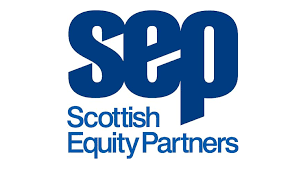
Programme
Republic Europe (Formerly Seedrs)


Finance and Risk Capital
Impact for scaleups

1,565
UK companies backed

43%
follow on investments

39%
outside London

443
growth stage investments
Key sectors














Now part of the US-based private investment platform Republic, Seedrs operates a pan-European equity crowdfunding platform. Since its formation in 2012, more than £2.6bn has been invested on the Seedrs platform and a total of 2,078 deals have been funded.
In the period between January 2016 to June 2023, the average amount raised was £962,000 with half (50%) of the 1,565 fundraising deals being growth stage investments.
In the 12 months to June 2023, the platform has been used by scaleups such as fintech Glint, digital bank Tandem, and online marketplace Landbay.
To help liquidity, more than 880 companies have traded on Seedrs’ secondary market to date. Since launching its secondary market in 2017, £25.6m has been traded.
Seedrs has introduced venture fund LP opportunities onto the platform, starting with a partnership with Passion Capital for its third fund enabling retail investors to back VC funds. It publishes an annual “state of the investor” report, identifying trends and attitudes among retail investors and is a signatory to the Women in Finance Charter.
An Alumni Club also serves Seedrs-funded businesses through a dedicated community featuring valuable tools, bespoke resources, curated events, discounts and an online community portal.

CONTENTS

Introduction 2023

Chapter 1 2023
The ScaleUp Business Landscape

Chapter 2 2023

Chapter 3 2023


Share